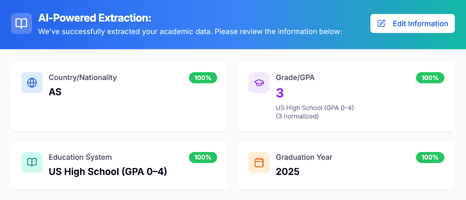Find your program
How to Study at a Spanish University as a Foreigner


Are you looking to continue your studies at a university in Spain and you don’t know what are the steps to follow? Well, you have come to the right place, with the StudiesIn Team we will detail everything you need to do and we will help you along the way.
The most important thing is that you are clear about everything that studying in Spain entails. You must keep in mind that you will be going to a country that has a very high quality education and world renowned universities. You will have many options to choose the course or career that you will pursue during your life, so it is good that you analyze the different paths you can follow. The main cities such as Madrid, Barcelona, Seville, Valencia, Granada, Salamanca or Zaragoza, have public and private universities that can help you fulfil your dreams.
First, you should know that some universities or each Autonomous Community may have different criteria than others, so it is important that you know the main requirements that are common and fundamental to achieve your desired entrance.
1. Homologation
The first thing you must do is to verify your Bachelor studies completed in your country of origin. Once your studies have been homologated or the application for homologation has been submitted correctly, you will have to take an entrance exam if you wish to access a public university.
2. Selectividad - Entrance Exam
In order to gain admission to a Spanish university there are two ways: The Evaluation for University Access for Foreigners (EVAU) or the Specific Competency Tests (PCE).
- EVAU: This test is mandatory for all Spanish students. In case you have a foreign baccalaureate, it is usually not compulsory. However, you should check with the university you wish to enter, because some of them may ask for it. If you are a foreigner and you took the EVAU, once you have passed it, you will have to apply for places through the so-called “foreign student quota”.
- PCE: The other option you have is to take the Specific Competences Tests. Each test is of a specific subject, and if you choose this path, you will have to choose a maximum of 6 subjects among all those offered. For students seeking homologation of their studies, the UNED recommends taking at least 4 PCE for your admission process.
3.Foundation Program
You should know which subjects you will take so that you can prepare yourself in the best possible way to take your exams. In addition, you should find out the cut-off score required by the university you are applying to. With all that, you will have to put together a study plan that suits your needs. There are many academies throughout the country where you can do this foundation program. From StudiesIn we recommend the high quality of Academia Guiu or AIL Madrid, which are two recognized academies that will prepare you for the necessary tests you will take to enter the university.

After taking the respective tests, you will have to wait between 3 and 4 weeks for the publication of the results. If you have had a good preparation, you should not have any problems to get a good grade. Once you have your score, you will reserve a place in the university of your choice. After analyzing all your results, in mid-July, the institution of your choice will contact you to see if you have been accepted or not. If the decision is positive, you will have to pay the tuition fees for the first year and make the final registration.
University courses usually start in September or October. From then on, a new stage will begin for you. It is a path that requires a lot of effort and dedication, but it will be worth it in the end. If you have doubts about all the process, we will be happy to help you with your first steps, so fill our web form and get a personal evaluation of your study options in Spain: https://studiesin.com/premium
.webp)


























.webp)





